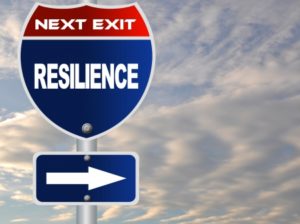By Rose O. Sherman, EdD, RN, FAAN

During national nursing recognition week, I gave 7 presentations both locally and outside my geographic area. As is my custom, I usually give the leadership in the healthcare organizations a choice of a number of topics. This year, every presentation requested was built around the topics of stress, burnout and resiliency. The leadership of the American Nurses Association was prescient in declaring the theme this year to be Nursing: The Balance of Mind, Body and Spirit.
With the uncertainty in healthcare and concern about the financial health of organization, it is not surprising that both nurses and their leaders are feeling very stressed and burned out. In a recent article A Roadmap to Decreasing Clinician Burnout published in Hospitals and Health Networks on May 15th, 2017, authors Paulus and Strand report that over 50% of nurses are emotionally exhausted and 25% are clinically depressed. The work of the critical care collaborative has yielded similar findings about the level of burnout in intensive care settings.
The evidence indicates that building resiliency is a powerful antidote to burnout. What I learned through my presentations was that few nurses are doing any of the recommended strategies to build their resiliency. In each session, I ask the following question:
Stand Up If You
- Sleep more than 7 hours per night
- Make it a point to engage in social activities with family and friends
- Exercise at least 45 minutes 3x per week
- Watch your diet
- Meditate or do Yoga
- Keep a gratitude journal of 3 things that you are either grateful for or went well in your day
- Take at least 30 minutes of “me time” each day
- Walk outside each day
- Try to see the glass as half full not half empty
- Leave the hospital before 6pm (this was for the leadership sessions)
- Do reflective writing about challenging situations
- Avoid ruminating about negative situations
In each session, only about 1/3 of nurses answered yes to any of the above – sleeping 7 hours was the least practiced resiliency strategy. The leaders in the audience were even less likely to answer yes to these questions and acknowledged that they know they are not good role models for self-care.
The nurses talked with me about how they felt we had a culture in our healthcare work settings that does not support resiliency practices. It is not uncommon for nurses not to take breaks, to eat on the run and to rarely use the restroom —almost a badge of honor in some settings. And now, our lack of self-care is starting to catch up with us as the work environment becomes more stressful. Most of these strategies don’t cost anything but a significant change in behavior. As we know, burnout comes at a heavy price and has been correlated the quality, safety and cost of care.
If our goal is to build healthy work environments, then promoting resiliency as an important competency should be a priority. It does not have to be complicated. A nurse at one session shared how a team leader had completely changed the culture on the unit by insisting on a huddle at the end of the shift where each nurse contributed at least one thing they were grateful about that happened that day. Initially, she said laughing – everyone was resistant and rolled their eyes. But over time, a funny thing happened – the nurses realized that they actually felt much better leaving work after they had done this. Rather than focus on the drive home on work left undone, they could smile about what went right. And their practice was evidence-based as gratitude is a well proven strategy to promote resiliency.
The single most important thing that leaders can do now is to get started doing something on their units or departments to promote better well being and build resiliency. We have no time to waste.
© emergingrnleader.com 2017


 LinkedIn
LinkedIn Instagram
Instagram